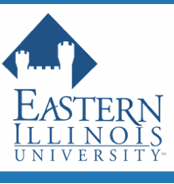Preferred Delivery
In-Person
Start Date
7-10-2022 3:00 PM
End Date
7-10-2022 4:50 PM
Document Type
Panel Discussion
Abstract
This presentation asks attendees to consider pedagogies of universal design that support student learning. Drawing on experiences in the classroom, the panelists will discuss various approaches to teaching that address the diverse perspectives and pedagogical needs of students. After briefly introducing theories of universal design for learning, the panelists will provide examples of assignment prompts and instructional approaches, develop questions for the audience to consider, and suggest potential revisions ideas for existing curriculum and projects.
Description
Jay Dolmage argues in Academic Ableism that institutions of higher education are inherently ableist and gatekeep students with their “steep steps” to admission and continued access (44). This inaccessibility is particularly insidious when one considers how intersectional experiences of discrimination work along lines of race, gender, class, sexuality, and disability. Indeed, Erin Whitney finds in her study of four Black middle school girls identified as having learning disabilities that a “curriculum embedded with multiple modes for representing knowledge can create pathways to culturally relevant and inclusive pedagogy, and contribute to the construction of powerful writing identities” (vi). This panel proposes a series of pedagogical approaches in the classroom that center students’ forms of knowledge-making and invite a universal design approach that emphasizes a multiplicity of representation, expression, and engagement to support student success. Speaker 1 will offer an extended exploration of the theories of universal design for learning and provide some hands-on context for questions instructors might ask themselves to create flexible and adaptable instruction. Speaker 2 will explore how adopting digital humanities techniques in the classroom can address larger issues related to accessibility and the digital divide in the classroom. Adopting digital tools can help to bridge the digital divide among students, while preserving the core principles of MEI including critical thinking, empathy, and inclusion. Speaker 3 will draw on sample prompts and revision suggestions to argue that college writing assignments with multimodal composing options offer students more agency, flexibility, and access, which ultimately makes for a more inclusive pedagogy. This presentation directly relates to MEI’s core principles of diversity, inclusion, equity, and equity-mindedness in that the presentation asks attendees to consider pedagogical best practices that support students’ multiple forms of meaning making and support student needs.
Creative Commons License

This work is licensed under a Creative Commons Attribution-Noncommercial-No Derivative Works 4.0 License.
Included in
Digital Humanities Commons, Disability and Equity in Education Commons, English Language and Literature Commons, History Commons
Creating Inclusive Classrooms: Demanding Excellence in Pedagogical Practices with Universal Design
This presentation asks attendees to consider pedagogies of universal design that support student learning. Drawing on experiences in the classroom, the panelists will discuss various approaches to teaching that address the diverse perspectives and pedagogical needs of students. After briefly introducing theories of universal design for learning, the panelists will provide examples of assignment prompts and instructional approaches, develop questions for the audience to consider, and suggest potential revisions ideas for existing curriculum and projects.





Speaker Information
Bios:
Elizabeth Tacke is an Assistant Professor of English at EIU and received her Ph.D. in English and Education from the University of Michigan-Ann Arbor. Her interdisciplinary research interests are situated within disability studies, trauma studies, life writing studies, and rhetoric. Before returning to school for her doctoral degree, Elizabeth was an English middle school teacher in Oakland, California. At Eastern, Elizabeth teaches methods courses for English Education majors, composition instruction with a social justice lens, and disability, life writing, and rhetoric courses. Elizabeth is also involved with prison education and programming and teaches with EIU’s Interdisciplinary Studies Program at Danville Correctional.
Rachael Ryerson is an Assistant Professor of English at EIU, and she received her Ph.D in Rhetoric & Composition from Ohio University. Her research foci include queer and gender studies, comics, multimodal composition, and composition pedagogy, and at times, the intersections among these disciplinary interests. She teaches a range of courses at EIU, from composition courses to graduate courses on composition pedagogy, and she recently taught a graduate course on queer rhetorics and composition. Outside of academia, she can be found experimenting in the kitchen, playing guitar, or wandering the woods.
Camden Burd is an Assistant Professor of History at EIU. He received his Ph.D. in History from the University of Rochester where he held an Andrew W. Mellon Fellowship in the Digital Humanities. He teaches a variety of classes at EIU and is the coordinator for the Public History Minor. His pedagogical research has appeared in a variety of publications including The Journal of Interactive Technology and Pedagogy, The Michigan Historical Review, and an edited collection from Indiana University Press titled Quick Hits for Teaching with Digital Humanities.